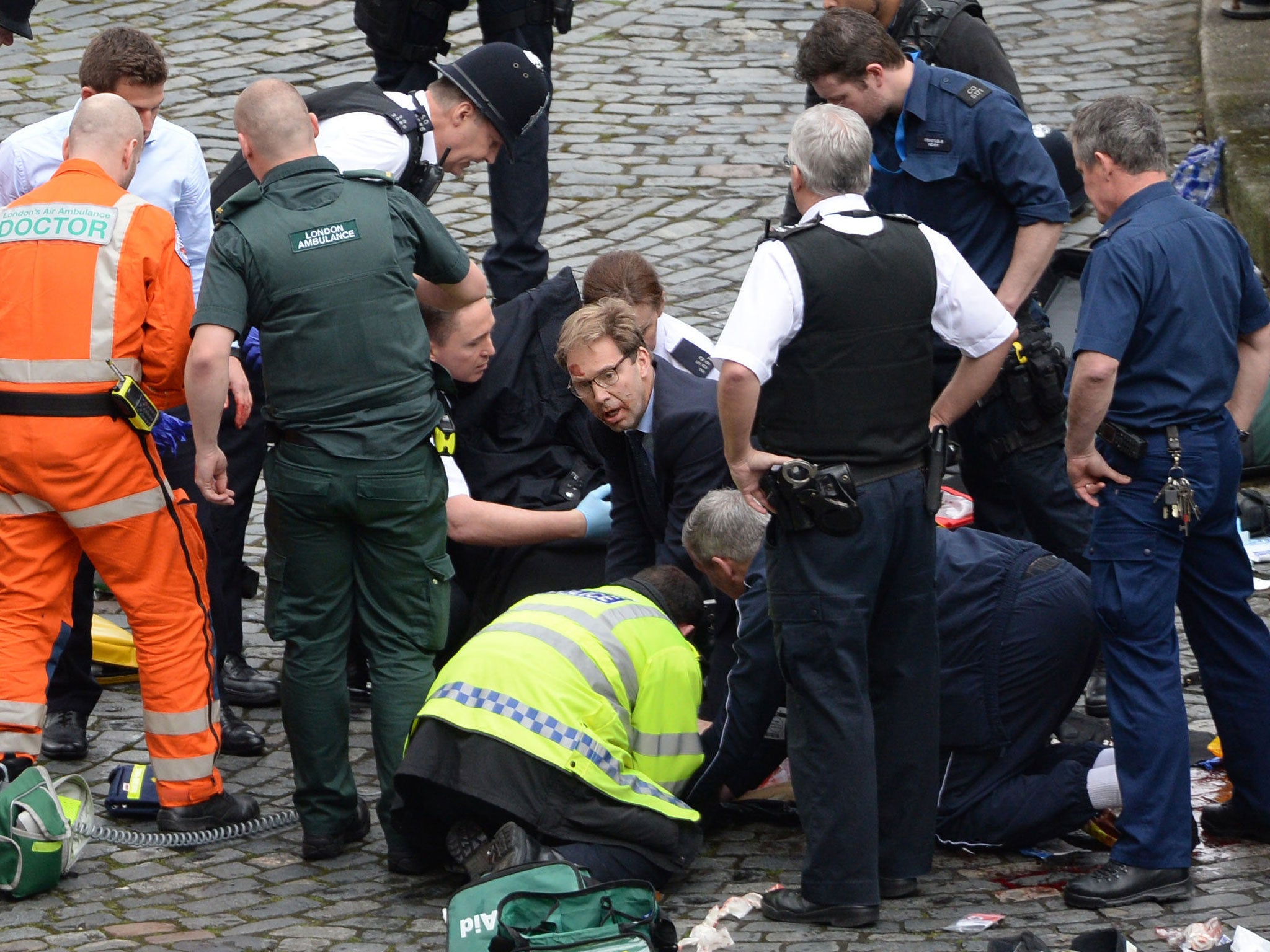The Westminster terror attack is a strike at the purest symbol of our democracy
Hatred drives terrorism, but increasingly it is becoming political currency. This latest horror must not be permitted to justify further rhetorical excesses

Your support helps us to tell the story
From reproductive rights to climate change to Big Tech, The Independent is on the ground when the story is developing. Whether it's investigating the financials of Elon Musk's pro-Trump PAC or producing our latest documentary, 'The A Word', which shines a light on the American women fighting for reproductive rights, we know how important it is to parse out the facts from the messaging.
At such a critical moment in US history, we need reporters on the ground. Your donation allows us to keep sending journalists to speak to both sides of the story.
The Independent is trusted by Americans across the entire political spectrum. And unlike many other quality news outlets, we choose not to lock Americans out of our reporting and analysis with paywalls. We believe quality journalism should be available to everyone, paid for by those who can afford it.
Your support makes all the difference.For years UK intelligence agencies have warned that it was only a matter of time before Britain fell victim to another significant terror attack. Realism dictated the prediction. Yet the hideous events around the parliamentary estate today have still come as a stunning shock.
Since the Tube bombings, which killed 56 people including four attackers in 2005, there have been several terrorist incidents involving attacks against individuals – the killing of Lee Rigby by Islamist extremists and the fatal assaults against Mohammed Salem and Jo Cox, both inspired by white supremacism. But while other countries around Europe have experienced mass-casualty assaults, the UK had remained free of such horrors for more than a decade. Not any longer.
A year to the day after 32 people were murdered in Brussels by Isis jihadis, fear has once again come to the streets of London. And by striking at the very heart of Britain’s democracy, the symbolism of this assault is clear for all to see.
The use of vehicles as weapons has long been a major concern of counter-terrorism specialists. Deadly incidents in Nice and Berlin last year demonstrated how a determined attacker could cause major and indiscriminate harm by driving a lorry into a massed crowd. Isis has made much in its propaganda of the tactic. Today’s attack, which began on Westminster Bridge, shows that even an ordinary car can be weaponised in the wrong hands.
With a trail of destruction in its wake, the car crashed into railings adjacent to the Houses of Parliament. An assailant, having apparently exited the vehicle, stabbed at least one police officer before himself being fatally shot. It remained unclear in the immediate, confused aftermath whether a single terrorist was responsible for all of the attack’s discrete elements. What could not be doubted was their impact: at least four people, including a policeman and the suspected attacker; lay dead several members of the public were said to have catastrophic injuries; Parliament went into lockdown. Indeed, large swaths of central London became a major, panicked crime scene.
The security services acted swiftly and decisively, with MPs and staff across parliamentary buildings locked in as a precautionary measure. Medics, many from nearby St Thomas’ Hospital, were quick to the scene. As is so often the case, members of the emergency services showed their skill and calmness in the most difficult of circumstances.
With police confirming within a short time that they were treating the attack as a terrorist incident, speculation inevitably commenced about the motivation of the man or men responsible. The threat from Isis or from those inspired by the group means that the initial focus will be on Islamic extremism. That is not unreasonable, although of course police will approach their investigations with an open mind. It is an example the media and the public – and politicians at home and abroad – should follow.
In recent months, the rhetoric of religious and ethnic division has been growing louder around the world – paradoxically perhaps, given the recent losses by Isis on the battlefield.
President Trump’s remarks about Muslims and his attempt to impose a travel ban have raised tensions. The diplomatic row between Turkey on the one hand and Germany and the Netherlands on the other ended with the Turkey’s President Erdogan talking of “holy wars” across Europe. Hatred drives terrorism, but increasingly it is becoming political currency. This latest horror must not be permitted to justify further rhetorical excesses.
As always, the right response to a terrorist attack is to think first of the victims killed and injured; to grieve for them and to support all affected by this senseless violence. But more than this, we must as a society carry on as normal, find strength in each other and stand united against extremism in all its forms.
Britain has been here before, and we are likely to be here again. We will not be bowed.
Join our commenting forum
Join thought-provoking conversations, follow other Independent readers and see their replies
Comments